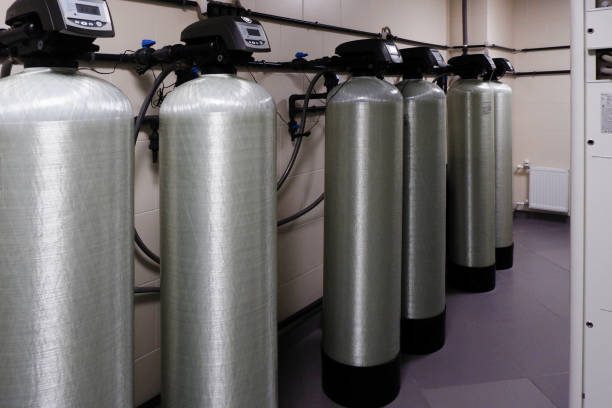Installing a water softener in your home can be numerous. They include improved dishwasher performance, reduced soap usage, and lower utility bills.
Calcium and magnesium are minerals that a water softener removes from your water source. It’s also an excellent way to reduce contaminants in your drinking water.
Improved Dishwasher Performance
When you run your dishwasher in hard water, your dishes and utensils will likely appear streaky or with an ugly film on them. Using a water softener effectively prevents this issue and ensures your words are as clean as possible.
When a water softeners Tampa is connected to your home’s plumbing system, the calcium and magnesium hardness minerals in your tap water are removed. This helps improve the performance of your appliances and keeps them running at their peak.
A water softener also helps eliminate limescale, which can build up in your dishwasher and around your home. This prevents your dishwasher from clogging and makes it last longer. It can also help to reduce your utility bills.
Reduced Soap Usage
When your home has soft water, you can reduce your soap. This is because hard water clogs the pores in your skin and makes it harder for soap to penetrate it.
With soft water, your soaps lather much better and require less liquid soap to clean dishes, laundry, and hair, saving you money and the environment.
Your clothes also appear softer when you wash them in soft water because there’s no buildup of hard minerals like calcium and magnesium that can leave them dingy.
You’ll also notice that the pipes in your house and appliances are more efficient, which helps to prolong their lifespans and save you money on costly repairs and replacements. Additionally, installing a water softener will increase the value of your home and make it more appealing to prospective buyers if you ever decide to sell it.
Reduced Utility Bills
Installing a water softener in your home is many, including reduced utility bills. Studies have shown that a household with a water softener saves energy costs, making it a wise investment for families in challenging water areas.
Water softeners help to remove calcium and magnesium ions from your water that can cause limescale buildup in your plumbing and appliances, resulting in expensive repairs. Limescale also makes washing dishes and glasses difficult, leaving streaks and film.
Installing a water softener can help you save money over time by shielding your appliances from harm and extending their lifespan. Reducing the time it takes for hot water to reach your faucets and showers also lowers your energy bill.
Longer-Lasting Fixtures
Investing in a water softener will pay off in the long run by helping to avoid costly repairs and replacements of your home’s appliances. Hard water can leave mineral deposits on your faucets, shower, piping, dishwasher, and espresso machine that erode and degrade over time.
A water softener will remove these contaminants and help to prevent limescale and soap scum from forming, which can lead to discoloration of your fixtures. In addition, it may extend the life of your appliances and plumbing by making them more efficient.
When installing a water softener in your home, ensure it’s located where it will be easy to access and use, such as near the main water line. It should also be near a drain that can discharge water.


Leave a Reply